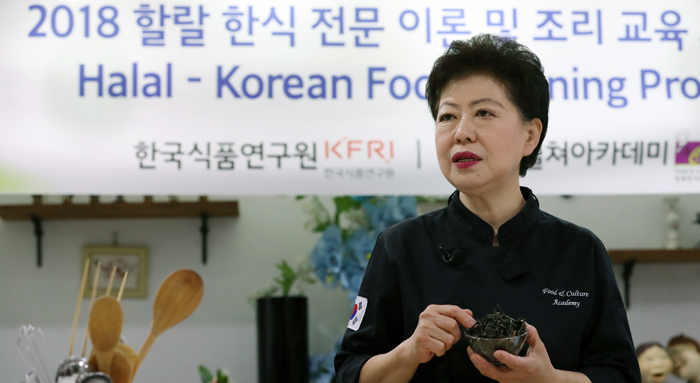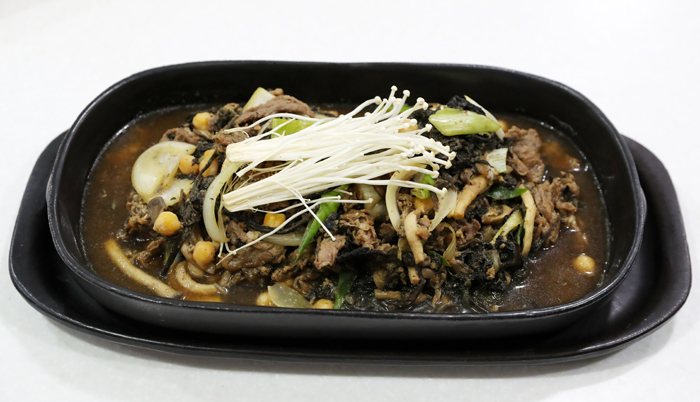
Kim Soo Jin, the principal of the Food and Culture Academy, gives a cooking class during the Halal-Korean Food Training Program 2018, held at the Food and Culture Academy in Jongno-gu District, Seoul, on Aug. 1.
By Kim Young Deok and Hahm Hee-eun
Photos = Jeon Han
Video = Kim Sunjoo and Choi Tae-soon
Seoul | Aug. 6, 2018
“Islamic food customs are no longer foreign to us.”
This is what Lim Jae Hyung said, who studies hotel cooking at Chodang University. He was taking part in the cooking class at the Halal-Korean Food Training Program 2018, held at the Food and Culture Academy in Jongno-gu District, Seoul, on Aug. 1.
The word halal in Arabic simply means "permissible," and it specifically refers to food and drink that is permissible or lawful according to traditional Islamic law. The opposite of halal would be haram, which means "forbidden" or "unlawful." Pork and liquor, of course, are haram.
Kim Soo Jin, the principal of the Food and Culture Academy, used to teach Korean recipes that were halal so that patients at Korean hospitals who were Muslim would be able to also have their food halal. Now, she has opened a cooking class for anyone to learn how to make Korean food according to the halal method.
This program, which was attended by 21 participants, was held over four days from July 30 to Aug. 1, the first such training program to be open to the general public.
Participants were from various backgrounds, such as university students, restaurant workers and professors. Through the program, they learned about important information and ingredients related to halal cooking. They took a lecture on Islamic food customs and participated in a halal cooking class.

Marinated bulgogi beef strips are prepared according to halal rules by Kim Soo Jin, the principal at the Food and Culture Academy.
Chodang University student Lim Jae Hyung said, “I applied for this program because I became interested in Islamic food customs. Through the program, I was able to understand the halal rules, which is a concept that's not too familiar in Korea yet. Now, the sense of distance between me and Islam has disappeared a little bit.”
Interest in halal food was also high among restaurant workers. Kwon Hoo Jin, the head of the Eating Establishment Institute, said, “Up until now, halal was a new and unfamiliar type of food in Korea. Through this training program, however, I've been able to learn and understand what halal is.”
In the cooking class, Kim Soo Jin, the principal of the Food and Culture Academy, showed how to make halal versions of bulgogi, thin slices of beef marinated in a sweet soy sauce, tteokbokki, rice cake in a red pepper sauce, and dakgangjeong, crispy fried chicken.
Kim said, “A lot of halal food contains vegetables, so I think one of the biggest charms of halal food is that it is healthy. I hope to further introduce Korean food that is halal to Islamic communities across the Middle East and Southeast Asia.”
This year’s Halal-Korean Food Training Program was co-organized by the Korea Food Research Institute (KFRI) and the Food and Culture Academy. Its goal is to train and develop professionals who are adept at halal versions of Korean food. Another class will open in September.
kyd1991@korea.kr